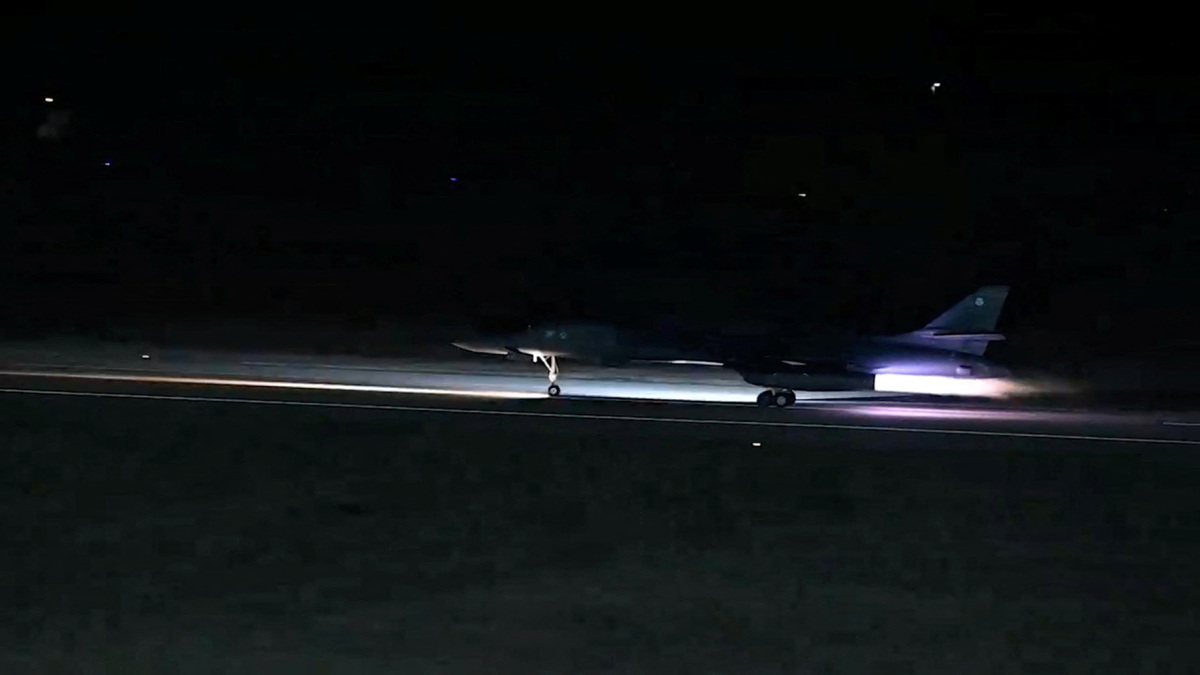
A plane takes off from an unidentified location, as the US launches airstrikes on targets linked to Iran's Revolutionary Guard (IRGC) and the militias it backs, in the screen grab from a handout video released on Feb 2, 2024. [Photo/Agencies]
The recent series of air strikes by the United States on Iran-backed military targets in Syria and Iraq have sparked international concern, as they are a clear violation of the sovereignty, independence and territorial integrity of these nations.
Robert Wood, the US alternate representative for special political affairs at the United Nations, defended these actions as being "necessary and proportionate", citing a country's "inherent right of self-defense" under Article 51 of the UN Charter. However, attempting to use this right to justify unauthorized military operations in the territories of other sovereign nations that a country is not at war with distorts the concept of self-defense.
The lack of approval from the nations concerned and the absence of pre-notification prior to the air strikes — which the US initially claimed it had done but which it later admitted it hadn't — further underscores the US' disregard for the principle of respecting other nations' sovereignty, as stipulated in the UN Charter. While State Department spokesman Vedant Patel claimed that Iraq and other regional countries "understood" the US' actions, which were in response to the deaths of three US soldiers, the criticism of the strikes expressed by Syria, Iraq and Iran contradicts this assertion and highlights the unilateral nature of the US' actions.
Rather than being acts of self-defense, the air strikes can be seen as retaliatory measures for the deaths of the US military personnel, as indicated by President Joe Biden's statement: "If you harm an American, we will respond." This reflects a retaliatory and vengeful stance rather than a defensive posture. Moreover, the distance of the initial attacks from the US military personnel and the broader historical context of US military involvement in the region suggest a pattern of escalating tensions rather than genuine self-defense.
Rosemary DiCarlo, under-secretary-general for political and peace-building affairs of the UN, has emphasized the volatile nature of the Middle East and called for active engagement to prevent further escalation and the deterioration of regional peace and security. Any more long-arm US military actions are not conducive to this and will only exacerbate tensions rather than alleviate them.
It is imperative for all parties involved to exercise restraint, adhere to the UN Charter and international laws, and, most importantly, refrain from illegal military actions that violate the sovereignty and territorial integrity of other nations. The US needs to demonstrate some restraint and abide by the established rules of the international community.













